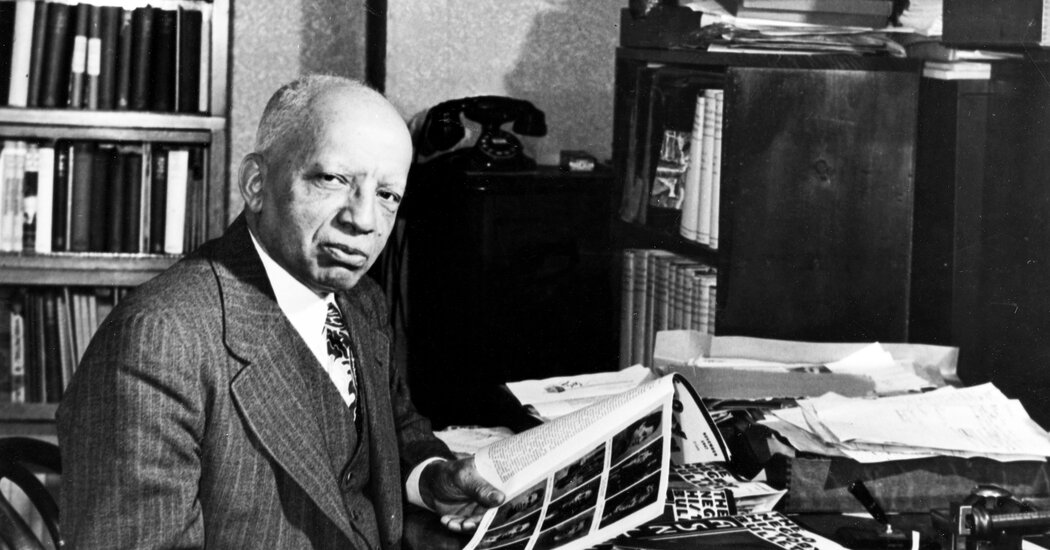Black History Month has roots going back nearly a century and can be traced back to the efforts of Carter G. Woodson, who was known as the “father of Black history.” In 1922, Woodson purchased a home on Ninth Street in Washington for his organization, the Association for the Study of Negro Life and History (A.S.A.L.H.). This association was pivotal in the publishing of works related to African American culture and history, paving the way for the foundation of The Journal of Negro History, which is still active as The Journal of African American History today. In 1926, Woodson initiated the first Negro History Week, which was the precursor to Black History Month.
The Ninth Street home became a hub for the Black history movement, attracting notable scholars, writers, and activists who sought Woodson’s mentorship, worked there, or merely passed through. Even after Woodson’s passing in 1950, A.S.A.L.H. remained based in the home until 1971. In 1976, the home was designated as a National Historic Landmark. Unfortunately, the building fell into disrepair and was purchased by the National Park Service in 2005, which is currently working on restoring it and creating a welcome center for visitors.
Woodson’s impact reached far beyond his lifetime, inspiring individuals like Ella McCall Haygan, who recalls Woodson as an influential and caring figure in her childhood neighborhood. Despite setbacks in her own life, including homelessness and dropping out of school, Haygan’s memories of Woodson inspired her to persevere and eventually earn a master’s degree in social work from the Catholic University of America in 1977.
Overall, Woodson’s enduring legacy and his commitment to preserving and promoting African American history and culture continue to shape the observance of Black History Month today. His home on Ninth Street in Washington remains a testament to his life’s work and dedication to advancing the understanding and appreciation of African American heritage.
Summery :
– Dr. Carter G. Woodson, the “father of Black history,” bought a house in 1922, and it became the headquarters for the Association for the Study of Negro Life and History
– He ran the Associated Publishers in the house, which focused on African American culture and history
– In 1926, he initiated the first Negro History Week, a precursor to Black History Month
– The office home was a significant hub for the Black history movement
– The Landmark house is now being restored by the National Park Service and will be open to visitors in the future
– Shaw, where the office home is, was a primarily Black neighborhood at the time like the Harlem of Washington
– Dr. Woodson’s home became a significant gathering place for Black scholars and activists
– The home’s interior is still unfurnished, but efforts are being made to restore its historical significance
– Despite facing adversity, Woodson’s work had a long-standing and impactful legacy, mentoring and inspiring generations of Black historians and scholars.
#BlackHistoryMonth #CarterGWoodson #NationalParkService #AfricanAmericanHistory #BlackHistoryMovement #ShawCommunity #NeighborhoodRoots #WashingtonDC #HistoricLandmark #DrCarterGodwinWoodson #AssociatedPublishers #NegroHistoryWeek #HarlemOfWashingtonDC #NationalHistoricLandmark #AssociationForStudyOfNegroLifeAndHistory
